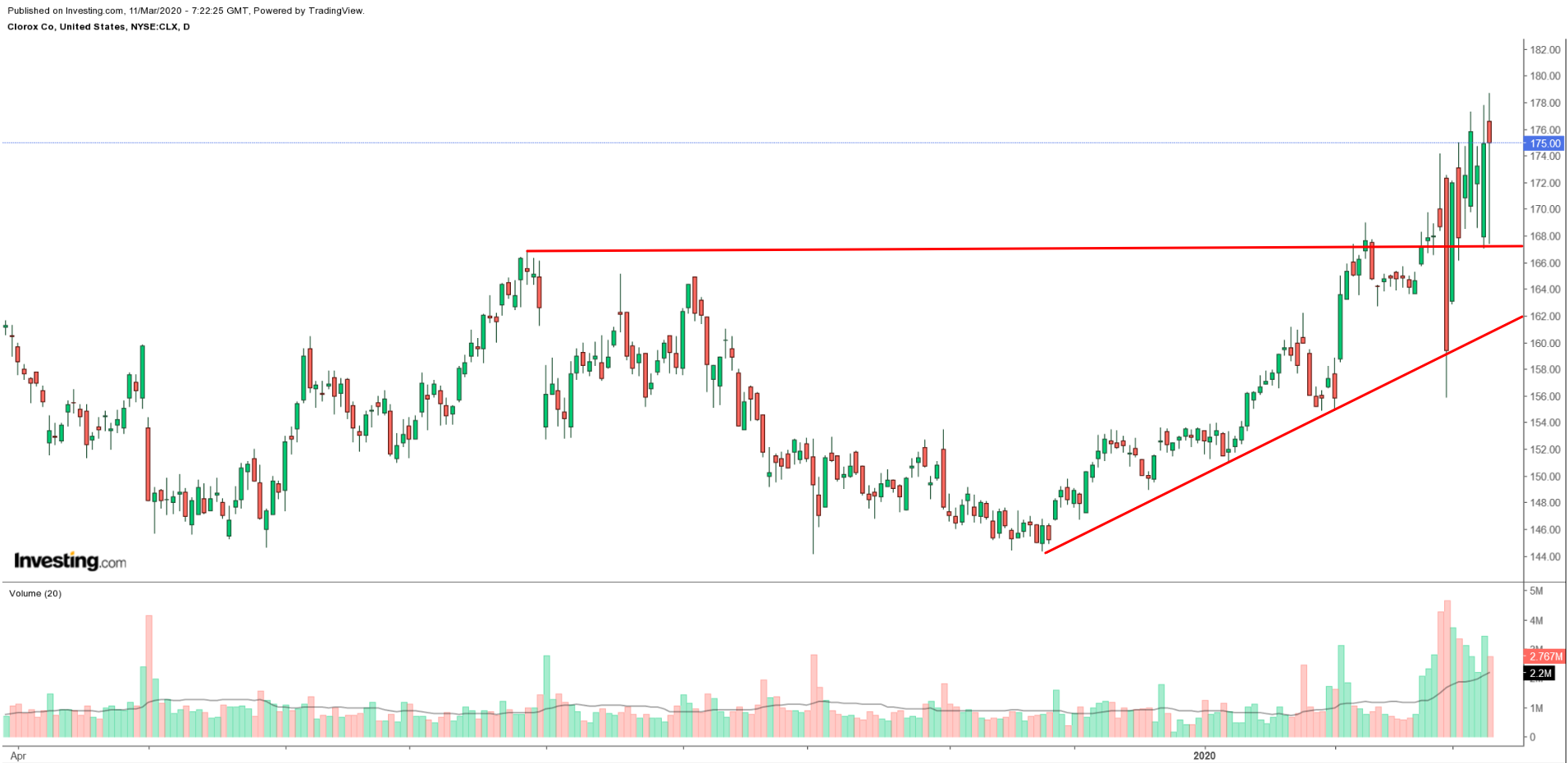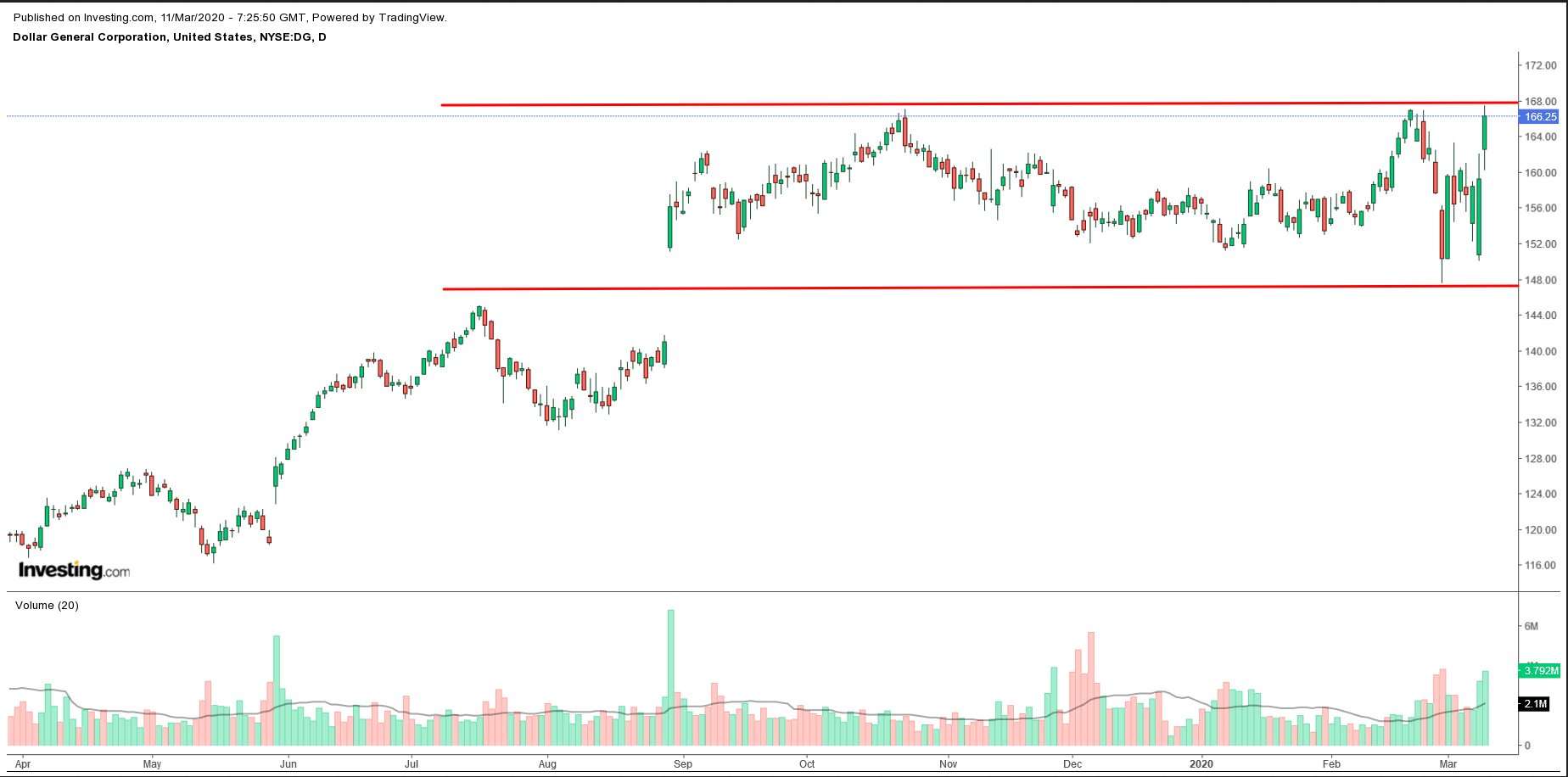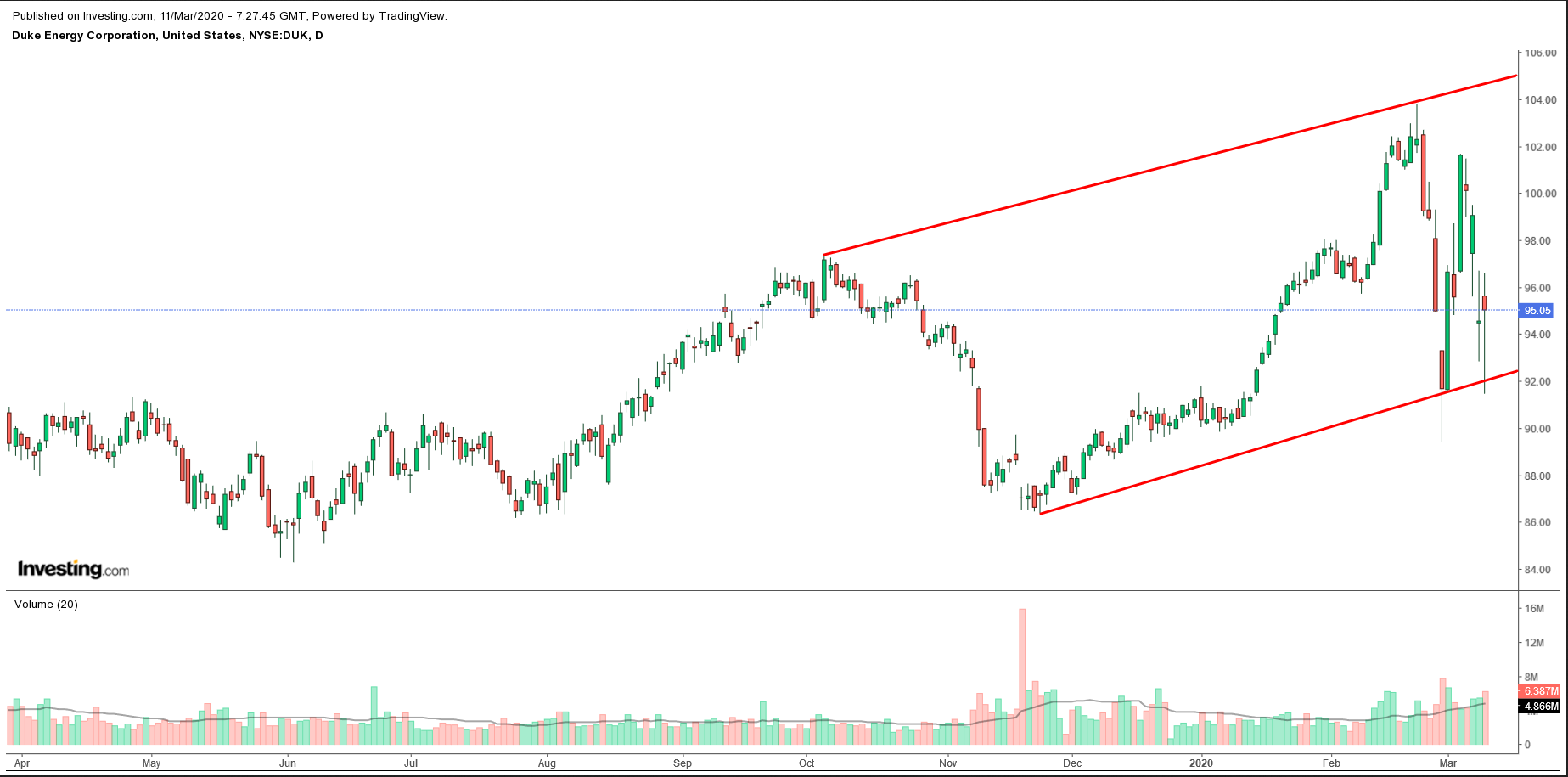Wall Street suffered its worst one-day loss since the 2008 global financial crisis on Monday. The Dow Jones Industrial Average tumbled as much as 2,000 points, as worries over a plunge in oil prices compounded existing fears over the impact of the coronavirus outbreak.
Stocks rebounded on Tuesday, with the Dow clawing back around half of the previous day’s selloff. Investors drew support from hopes of coordinated policy action by governments and central banks around the world.
As Wall Street continues its wild rollercoaster ride, the three stocks below are well-positioned to ride out the ongoing market turmoil:
1. The Clorox Company: Virus Panic Fuels Gains
As COVID-19 widens its reach in the U.S., shares of The Clorox Company (NYSE:CLX) are in high demand. U.S. consumers are turning to Clorox products—especially disinfecting wipes, bleach, and cleaning sprays—to prevent the spread of the deadly coronavirus. As a result, disinfectant products are flying off shelves.
Shares have steadily climbed to all-time highs even as the broader market suffers intense bouts of volatility. Stock of the consumer products giant, which are up almost 10% this month, touched a record high of $178.84 on Tuesday, before closing the session at $175.00 giving it a market cap of $21.89 billion.

The Oakland, California-based company recently highlighted that its products, including Disinfecting Bleach, Clean-Up All Purpose Cleaner and Disinfectant Wipes, can be used to fight the spread of coronavirus as the trio have "demonstrated effectiveness" against similar viruses on "hard, non-porous surfaces."
Furthermore, the Center for Biocide Chemistries recently published a list of approved products for combating the coronavirus. Clorox sells 21 of the 139 items, more items than any other competitor.
The cleaning supplies provider reported fiscal second-quarter earnings and revenue that topped expectations on Feb. 4. These positive results came before COVID-19 panic prompted an uptick in demand according to the post-earnings conference call with CEO Benno Dorer. At the time, the outbreak was primarily impacting China.
2. Dollar General: Recession-Proof Discount Retailer
As fears start to mount that the U.S. economy will hit a soft patch in the months ahead, Dollar General (NYSE:DG) should be on your radar.
The largest discount retailer in the U.S. operates more than 15,000 stores in 44 states, selling groceries, household supplies and personal care products at low prices. In times of economic downturn, Dollar General is set to profit as more customers seek out discount prices. The company has stated that its core customers are households earning less than $35,000, further underlining its recession-proof status.
The Goodlettsville, Tennessee-based retailer has seen shares rise almost 9% in March. The stock, which has rallied 37% year-to-date, soared to a fresh all-time high of $167.40 yesterday, before closing at $166.25 with a market cap of $42.33 billion.

Dollar General next reports earnings on Thursday, Mar. 12. Consensus calls for earnings per share of $2.01 for the fourth quarter, up 9% from EPS of $1.84 in the year-ago period. Revenue is forecast to rise 8% from the same period a year earlier to $7.15 billion.
One burning question that remains: how is the global COVID-19 epidemic affecting Dollar General’s supply chain? Competitor Dollar Tree (NASDAQ:DLTR) noted a slight impact so far this year on its supply chain when it released its Q4 earnings report last week.
3. Duke Energy: High-Yielding Utility Provider
As the Federal Reserve eases borrowing costs and interest rates fall, Duke Energy (NYSE:DUK), one of the largest electric and natural gas utilities in the U.S., has potential to deliver strong returns in the months ahead. Utility stocks tend to outperform in low interest rate environments due to their attractive dividend yield.
Shares of the Charlotte, North Carolina-based corporation, which are up about 4% this month, settled at $95.05 last night, 8% below the recent record high of $103.79 hit on Feb. 24. Duke Energy closed with a market cap of roughly $69.7 billion.

The utility provider currently offers a quarterly dividend of $0.9450 per share. This represents an annualized dividend of $3.78 and a yield of 4.00%, making it an extremely attractive play in the current environment of declining rates. For comparison, the yield on the benchmark U.S. 10-year Treasury fell to a record low of 0.342% on Monday before recovering somewhat. It rose to 0.8% on Tuesday.
Duke Energy reported fourth quarter adjusted earnings of 91 cents per share on Feb. 13, which surpassed consensus estimates for earnings per share of 87 cents. Revenue totaled $6.1 billion, thanks to strong sales at its gas and electric transmission segment and renewable-energy business.
